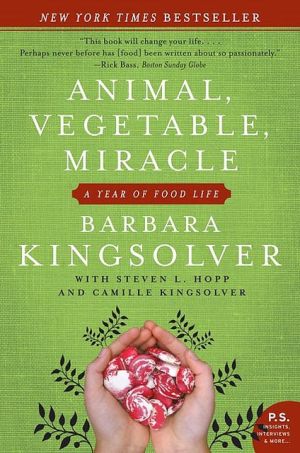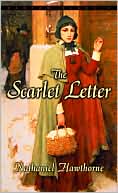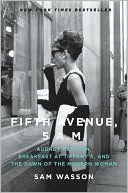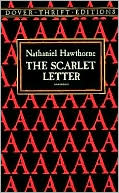Animal, Vegetable, Miracle: A Year of Food Life
Author Barbara Kingsolver and her family abandoned the industrial-food pipeline to live a rural life—vowing that, for one year, they’d only buy food raised in their own neighborhood, grow it themselves, or learn to live without it. Part memoir, part journalistic investigation, Animal, Vegetable, Miracle is an enthralling narrative that will open your eyes in a hundred new ways to an old truth: You are what you eat.
Search in google:
Bestselling author Barbara Kingsolver describes her family's adventure as they move to a farm in southern Appalachia and realign their lives with the local food chain. When Kingsolver and her family move from suburban Arizona to rural Appalachia, they take on a new challenge: to spend a year on a locally produced diet, paying close attention to the provenance of all they consume. "Our highest shopping goal was to get our food from so close to home, we'd know the person who grew it. Often that turned out to be ourselves as we learned to produce what we needed, starting with dirt, seeds, and enough knowledge to muddle through. Or starting with baby animals, and enough sense to refrain from naming them." Animal, Vegetable, Miracle follows the family through the first year of their experiment. They find themselves eager to move away from the typical food scenario of American families: a refrigerator packed with processed, factory-farmed foods transported long distances using nonrenewable fuels. In their search for another way to eat and live, they begin to recover what Kingsolver considers our nation's lost appreciation for farms and the natural processes of food production. American citizens spend less of their income on food than has any culture in the history of the world, but pay dearly in other ways -- losing the flavors, diversity and creative food cultures of earlier times. The environmental costs are also high, and the nutritional sacrifice is undeniable: on our modern industrial food supply, Americans are now raising the first generation of children to have a shorter life expectancy than their parents. Believing that most of us have better options available, Kingsolver and her family set out to prove for themselves that a local diet is not just better for the economy and environment but also better on the table. Their search leads them through a season of planting, pulling weeds, expanding their kitchen skills, harvesting their own animals, joining the effort to save heritage crops from extinction, and learning the time-honored rural art of getting rid of zucchini. Inspired by the flavors and culinary arts of a local food culture, they explore farmers' markets and diversified organic farms at home and across the country, discovering a booming movement with devotees from the Deep South to Alaska. Part memoir, part journalistic investigation, and complete with original recipes, Animal, Vegetable, Miracle makes a passionate case for putting the kitchen back at the center of family life, and diversified farms at the center of the American diet.The Washington Post - Bunny CrumpackerThis is a serious book about important problems. Its concerns are real and urgent. It is clear, thoughtful, often amusing, passionate and appealing. It may give you a serious case of supermarket guilt, thinking of the energy footprint left by each out-of-season tomato, but you'll also find unexpected knowledge and gain the ability to make informed choices about what -- and how -- you're willing to eat.
Called Home 1Waiting for Asparagus: Late March 23Springing Forward 43Stalking the Vegetannual 63Molly Mooching: April 70The Birds and the Bees 86Gratitude: May 100Growing Trust: Mid-June 111Six Impossible Things Before Breakfast: Late June 124Eating Neighborly: Late June 148Slow Food Nations: Late June 154Zucchini Larceny: July 173Life in a Red State: August 196You Can't Run Away on Harvest Day: September 219Where Fish Wear Crowns: September 242Smashing Pumpkins: October 259Celebration Days: November-December 277What Do You Eat in January? 296Hungry Month: February-March 315Time Begins 334Acknowledgments 353References 355Organizations 358Sidebar Resources 364
\ From Barnes & NobleNovelist Barbara Kingsolver once wrote, "If we can't, as artists, improve on real life, we should put down our pencils and go bake bread." In Animal, Vegetable, Miracle, she manages to do both, applying her literary skills to a new food environment. In her seamless diary narrative, Kingsolver tells how she and her family relocated to southern Appalachia after suffering through years of drought in Arizona. The purpose of the move was simple: The Kingsolvers sought to "live in a place that could feed us" by growing their own food and living among a community of local organic growers.\ \ \ \ \ Ellen Goodman"Highly digestible…Engaging."\ \ \ Corby Kummer"Engaging…Absorbing…Lovely food writing…[Kingsolver] succeeds at adopting the warm tone of a confiding friend."\ \ \ \ \ Rick Bass"A profound, graceful, and literary work . . . Timeless. . . . It can change who you are."\ \ \ \ \ MoreMagazine"Kingsolver beautifully describes this experience."\ \ \ \ \ Outside Magazine"Kingsolver dresses down the American food complex…These down-on-the-farm sections are inspiring and…compelling."\ \ \ \ \ People Magazine"Provocative . . . Kingsolver . . . evokes the sheer joy of producing one’s own food."\ \ \ \ \ Chicago Tribune (on the audiobook)“Wry, insightful and inspiring to anyone who yearns to work with the earth.”\ \ \ \ \ Tucson Citizen"If you...buy...one book this summer, make it this one...As satisfying and complete as a down home supper."\ \ \ \ \ St. Louis Post-Dispatch"Equal parts folk wisdom and political activism . . . This family effort instructs as much as it entertains."\ \ \ \ \ Houston Chronicle"Charming . . . Literary magic . . . If you love the narrative voice of Barbara Kingsolver, you will be thrilled."\ \ \ \ \ Entertainment Weekly"Loaded with terrific information about everything from growth hormones to farm subsidies."\ \ \ \ \ Raleigh News & Observer"Full…of zest and sometimes ribald humor… Reading this book will make you hungry."\ \ \ \ \ Rocky Mountain News"[Written] with passion and hope…This novelist paints a compelling big picture-broad and ambitious, with nary an extraneous stroke."\ \ \ \ \ Milwaukee Journal Sentinel"Charming...and persuasive...Each season-and chapter-unfolds with a natural rhythm and mouth-watering appeal."\ \ \ \ \ St. Petersburg Times"An impassioned, sensual, smart and witty narrative…Kinsolver is a master at leavening a serious message with humor."\ \ \ \ \ Chicago Sun-Times"ANIMAL, VEGETABLE, MIRACLE is a chronicle of food feats…I’m inclined to agree with most points Kingsolver makes."\ \ \ \ \ Washington Post"Every bit as transporting as-and more ecologically relevant than-any "Year In Provence"-style escapism...Earthy...informative....[and] englightened."\ \ \ \ \ Chicago Tribune"Delectable . . . steeped in elegant prose and seasoned with smart morsels about the food industry."\ \ \ \ \ Outside magazine“Kingsolver dresses down the American food complex…These down-on-the-farm sections are inspiring and…compelling.”\ \ \ \ \ Roanoke Times"Anyone who read and appreciated THE OMNIVORE’S DILEMMA by Michael Pollan will want to read Barbara Kingsolver’s book."\ \ \ \ \ Richmond Times-Dispatch"[This] is a book that, without being preachy, makes a solid case for eating locally instead of globally."\ \ \ \ \ Miami Herald"Kingsolver, who writes evocatively about our connection to place, does so here with characteristic glowing prose. She provides the rapture."\ \ \ \ \ Seattle Post-Intelligencer"Homespun, unassuming, informed, positive, inspiring. . . . Unstinting in its concerns about this imperiled planet."\ \ \ \ \ Los Angeles Times"A lovely book. "\ \ \ \ \ More Magazine“Kingsolver beautifully describes this experience.”\ \ \ \ \ Washington Post Book World"Charming, zestful, funny and poetic…a serious book about important problems."\ \ \ \ \ Daily News"[Kingsolver is] a master storyteller, and even those who’ve heard this tale before will be captivated."\ \ \ \ \ Bookreporter.com"I defy anyone to read this book and walk away from it without gaining at least the desire to change."\ \ \ \ \ People“Provocative . . . Kingsolver . . . evokes the sheer joy of producing one’s own food.”\ \ \ \ \ Christian Science Monitor"Kingsolver…adds enough texture and zest to stir wistful yearnings in all of us...[A] vicarious taste of domesticity."\ \ \ \ \ Charlotte Observer"Other notable writers have addressed this topic, but Kingsolver claims it as her own....Self-deprecating instead of self-righteous."\ \ \ \ \ BookPage"Faithful, funny, and thought-provoking...Readers-whether vegetarian or carnivore-will not go hungry, literally or literarily."\ \ \ \ \ Self"Lessons learned in sustainability are worth feasting on-and taking to heart."\ \ \ \ \ The Oregonian (Portland)"A terrific effort. The delight for readers…is the chance to experience the rediscovery of community through food."\ \ \ \ \ Bunny CrumpackerThis is a serious book about important problems. Its concerns are real and urgent. It is clear, thoughtful, often amusing, passionate and appealing. It may give you a serious case of supermarket guilt, thinking of the energy footprint left by each out-of-season tomato, but you'll also find unexpected knowledge and gain the ability to make informed choices about what -- and how -- you're willing to eat.\ — The Washington Post\ \ \ \ \ Korby KummerWhat is likely to win the most converts, though, is the joy Kingsolver takes in food. She isn’t just an ardent preserver, following the summertime canning rituals of her farming forebears. She’s also an ardent cook, and there’s some lovely food writing here.\ — The New York Times\ \ \ \ \ Publishers WeeklyIn her engaging though sometimes preachy new book, Kingsolver recounts the year her family attempted to eat only what they could grow on their farm in Virginia or buy from local sources. The book's bulk, written and read by Kingsolver in a lightly twangy voice filled with wonder and enthusiasm, proceeds through the seasons via delightful stories about the history of their farmhouse, the exhausting bounty of the zucchini harvest, turkey chicks hatching and so on. In long sections, however, she gets on a soapbox about problems with industrial food production, fast food and Americans' ignorance of food's origins, and despite her obvious passion for the issues, the reading turns didactic and loses its pace, momentum and narrative. Her daughter Camille contributes recipes, meal plans and an enjoyable personal essay in a clear if rather monotonous voice. Hopp, Kingsolver's husband and an environmental studies professor, provides dry readings of the sidebars that have him playing "Dr. Scientist," as Kingsolver notes in an illuminating interview on the last disc. Though they may skip some of the more moralizing tracks, Kingsolver's fans and foodies alike will find this a charming, sometimes inspiring account of reconnecting with the food chain. Simultaneous release with the HarperCollins hardcover (Reviews, Mar. 26). (May)\ Copyright 2007 Reed Business Information\ \ \ \ \ Library JournalWhat happens when the beloved novelist and her family decide to settle in southern Appalachia and eat only food that's available locally. With a 12-city tour; one-day -laydown. Copyright 2007 Reed Business Information.\ \ \ \ \ Library JournalBest-selling novelist Kingsolver and her family moved from Tucson, AZ, to the fertile lands of Southern Appalachia, where agriculture is an accepted excuse for absence from school, to undertake an experiment of sorts. The family joined the locavore movement, which promotes eating only what is locally raised, grown, and produced. This account of their ongoing experiment is a family affair: daughter Lily morphs into a poultry entrepreneur; daughter Camille, a college student, sprinkles her own anecdotes and seasonal menus throughout; and essays by Kingsolver's husband, Hopp, an academic, warn of the high cost of chemical pesticides, fossil fuels, and processed foods environmentally, financially, and on our health. Patience is a virtue in this undertaking, which calls for eating only what is in season; however, Kingsolver's passion for food and near sensual delight in what she pulls from her garden make the enterprise seem enticing. The author's narration is homey, folksy, and warm; Camille and Hopp narrate as well. Part memoir, part how-to, and part agricultural education, this book is both timely and entertaining. With Kingsolver's broad readership; a large movement toward organic, healthful eating; and heavy media attention on the subject, expect demand. Recommended for public libraries.\ —Risa Getman\ \ \ \ \ \ School Library JournalAdult/High School -This book chronicles the year that Barbara Kingsolver, along with her husband and two daughters, made a commitment to become locavores-those who eat only locally grown foods. This first entailed a move away from their home in non-food-producing Tuscon to a family farm in Virginia, where they got right down to the business of growing and raising their own food and supporting local farmers. For teens who grew up on supermarket offerings, the notion not only of growing one's own produce but also of harvesting one's own poultry was as foreign as the concept that different foods relate to different seasons. While the volume begins as an environmental treatise-the oil consumption related to transporting foodstuffs around the world is enormous-it ends, as the year ends, in a celebration of the food that physically nourishes even as the recipes and the memories of cooks and gardeners past nourish our hearts and souls. Although the book maintains that eating well is not a class issue, discussions of heirloom breeds and making cheese at home may strike some as high-flown; however, those looking for healthful alternatives to processed foods will find inspiration to seek out farmers' markets and to learn to cook and enjoy seasonal foods. Give this title to budding Martha Stewarts, green-leaning fans of Al Gore's An Inconvenient Truth (Rodale, 2006), and kids outraged by Eric Schlosser's Fast Food Nation (Houghton, 2001).-Jenny Gasset, Orange County Public Library, CA\ Copyright 2006 Reed Business Information.\ \ \ \ \ Kirkus ReviewsWith some assistance from her husband, Steven, and 19-year-old daughter, Camille, Kingsolver (Prodigal Summer, 2000, etc.) elegantly chronicles a year of back-to-the-land living with her family in Appalachia. After three years of drought, the author decamped from her longtime home in Arizona and set out with Steven, Camille and younger daughter Lily to inhabit fulltime his family's farm in Virginia. Their aim, she notes, was to "live in a place that could feed us," to grow their own food and join the increasingly potent movement led by organic growers and small exurban food producers. Kingsolver wants to know where her food is coming from: Her diary records her attempts to consume only those items grown locally and in season while eschewing foods that require the use of fossil fuels for transport, fertilizing and processing. (In one of biologist Steven's terrific sidebars, "Oily Food," he notes that 17 percent of the nation's energy is consumed by agriculture.) From her vegetable patch, Kingsolver discovered nifty ways to use plentiful available produce such as asparagus, rhubarb, wild mushrooms, honey, zucchini, pumpkins and tomatoes; she also spent a lot of time canning summer foods for winter. The family learned how to make cheese, visited organic farms and a working family farm in Tuscany, even grew and killed their own meat. "I'm unimpressed by arguments that condemn animal harvest," writes Kingsolver, "while ignoring, wholesale, the animal killing that underwrites vegetal foods." Elsewhere, Steven explores business topics such as the good economics of going organic; the losing battle in the use of pesticides; the importance of a restructured Farm Bill; mad cow disease; and fairtrade. Camille, meanwhile, offers anecdotes and recipes. Readers frustrated with the unhealthy, artificial food chain will take heart and inspiration here.\ \







